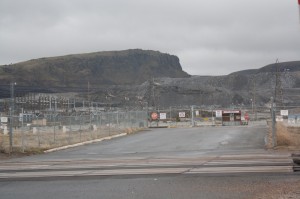“We’re relatively pessimistic about the economic outlook in two of our three major regions. 2012 just looks tough to me.”-Meg Whitman, new CEO of Hewlett-Packard
“It’s an extraordinarily unimaginative way to use money.”-Robert Reich, former U.S. Secretary of Labor
What’s the former U.S. Secretary of Labor talking about? Why Corporate America buying back its own stocks. Companies are able to do this because they are not spending money on research and development, and, according to a New York Times article, it’s the real reason companies are still laying off employees. They’re using the money they would have paid for the labor to buy back company stocks.
In November employees at the Boise, Idaho, Hewlett-Packard (HP) factory reported that layoffs were in the works. In July HP bought back U.S.$10 billion of their own stocks, then laid off 500 employees in September. HP officials avoided directly answering questions about layoffs in Idaho by saying they were working on a “press release”. It’s been a couple of weeks now and no press release.
A lot of problems are being created by the way Corporate America is buying back their stocks. For one it artificially increases the value of their stocks: “Unless earnings per share are adjusted to reflect the buyback, then to base a bonus on raw earnings per share is problematic. It doesn’t purely reflect performance.”-John L. Weinberg, University of Delaware
Number two, it’ll delay any economic recovery: “It’s a symptom of a deeper problem, which is a lack of investment in the long term. If we’re not investing in research, innovation and entrepreneurship, we’re going to be a slow growth country for a decade.”-William W. George, Harvard Business School
And thirdly, it’s increasing unemployment, which is only adding to the downward spiral of the economy.
On November 22, Meg Witman, former eBay CEO, former California Gubernatorial candidate, and new CEO of Hewlett-Packard, was questioned about HP’s huge cuts in R&D. Here’s her response: “It’s not (return on investment) in year one or two. I think the investments we make in 2012 you’ll start to see in 2014 and 2015. I wish I could tell you differently but it’s not true. And you’re right. We cut out a lot of muscle in R&D at this company and we have to invest back in it. It’s a long term play. I will tell you, this management team, we are now building HP, we’re building it to last. We’re not building it for next month or next quarter. We are building this company to be great over the next decade. And you’ll see improvements every single year. You’ll be able to measure us on how we’re doing. But we’re making some long term bets here because we can’t continue to run this company for the short term.”
Knowing that the latest trend in Corporate America is buying back their own stock, at the expense of R&D and employment, is that what Whitman means when she says “…we’re making some long term bets…”?
Whitman’s answer is confusing. Traditional economics tells you that investing in R&D is a long term “bet”. Yet Whitman calls it “short term”.
So is that what Whitman means when she says we should see returns on investment in 2014/2015? The investment meaning buying back their own stocks?
Anyone who’s taken economics, or business courses should know that traditional investment into your own company means R&D; to come up with more efficient ways to produce products, or coming up with new products/services, better marketing, etc. But it does not mean buying back your own stocks.
Perhaps stock buybacks are the real reason there are layoffs coming for HP’s Boise operation, and officials are still trying to come up with a good sounding reason for their forthcoming “press release”?
Hopefully, since Whitman just started her job as HP CEO, she’s talking about a return to traditional economics. Hopefully it’ll mean an end to HP’s stock buy backs and a return to putting money into R&D and employment, she did say: “We cut out a lot of muscle in R&D at this company and we have to invest back in it.” Oh well, wishful thinking.
